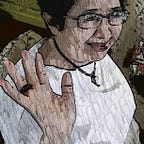Something About Mr. Stephen King’s Works
A horror genre that goes a long way beyond horror
A horror story is not my cup of tea. I am too coward to read scary scenes in those stories. So, I am not so familiar with many horror stories. However, Mr. Stephen King’s novels are different from works in other horror genres. I will miss out a lot in my life as a reader if I never read his novels. So, I swallow my fear and choose a couple of books from a prolific output of King’s works.
I find out after reading his horror novels and watch his horror films such as Carrie, Misery or Dolores Clairebornes that something about Stephen King’s works makes them stand out from other works in his genre. To say the least, his works even stand out in the same rank as other classic writers such as Edgar Allan Poe or Ernest Hemingway.
Being prolific doesn’t decrease the quality of his works. His horror novels give much more than sensational violence of blood and gores. It must be because his horror stories are not just senseless thrillers but are full of humanity.
His characters, though weird from the standard of the status quo, are not ordinary rampant psychopaths who are out only to kill people or wreak havoc on many things.
Most of his protagonists are underdogs, working-class characters who are victimized by the rigid norm of American middle-class society. They deserve empathy rather than condemnation. That’s why when reading King’s novels, an audience feels moved by the plight of these characters however deviant they behave as in the case of Carrie or Dolores Clairebornes.
When made into a movie, King’s works on screen tend to be full of sensational scenes of blood and gores. Because movie aims for most mass moviegoers who come for temporary thrilling entertainment. But if watch carefully, many scenes move your humanity and you can’t help sympathizing with those psychopaths despite their cruel behaviors.
You understand and sympathize with Carrie regardless of the incredibly wide-scale destruction she causes. King’s characters are built with motives and rationale explaining the origin of their plight and their victimization by society. No matter how violent or crazy they become, readers understand what leads them to commit such a crime.
Look at Annie Wilkes in Misery, a devout fan of Paul Sheldon’s Misery serial novel. She happens to hold her favorite novelist as hostage after his car accident. She nurtures him back to health but forces him to write the novel misery the way she wants. Her madness manifests after she finds out in the end that Paul Sheldon kills her beloved heroine at the end of the novel. She forces him to write a new ending version.
Annie’s blurred line between reality and fantasy is to blame. No doubt about how delusional she is. She compensates her failed marriage and a life of loneliness with sweet escapism such as Paul Sheldon’s novel and corny music by Liberace. I like how the director Rob Reiner selects the sweet and corny soundtrack against many horror scenes. What an irony! She is also a psychopath with a lot of criminal background as Paul Sheldon finds in her “memory Lane.”
Not only do we get a thrilling sensation fro watching his horror movie, we learn a lesson all human beings deserve love and kindness from us no matter how deviant. They are just humans like us after all. They are victims, victimised and then victimisers. As a member of society, we all play a part in their wrongdoings.
Mr. Stephen King’s works defy and go against the Aritotelian theory about tragedy. Aristotle said in his famous ‘Poetics’, though tragedy ends up with death and violence, there should never be even a drop of blood or any scene of violence on stage.
Why did Aristotle say that? He said that because tragedy should go to the head to make people contemplate the ups and downs of life to achieve catharsis (an intellectual insight) which is the purpose of tragedy.
According to Aristotle, the tragedy’s blood and gores on stage impacts your bodily sensation rather than giving you an intellectual insight. Instead of contemplating the truth of life, you would become mindlessly thrilled by the senseless violence on stage.
An audience won’t be able to achieve catharsis, a kind of intellectual purgation and thus learn an insight about life.
Stephen King’s horror genre defies Aristotelian theory and goes against what Aritotle said in ‘Poetics’. Though full of violent blood and gores, King’s works let us come close to reaching a different kind of Aristotelian catharsis in the sense that his works are full of humanity and make an audience understand what’s it like to be human.
Stephen King’s horror novels go beyond Aristotelian theory in that it can be watched or read as a thrilling entertainment as well as profound works full of humanity and empathy.
After witnessing various violent things erupting in our world, don’t you feel these characters are forgivable and understandable in their madness. We even doubt how we can stay sane in such a world.
